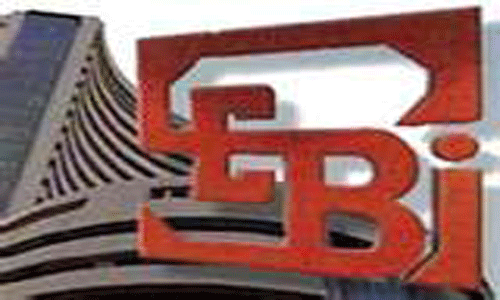 Track2Realty-Agencies: The Securities and Exchange Board of India on Sunday, Aug 10, approved final guidelines for setting up of investment trusts for these sectors. This will enable Real Estate Investment Trust (REIT) and Infrastructure Investment Trusts (InvIT) to list on stock exchanges like shares and mutual fund units.
Track2Realty-Agencies: The Securities and Exchange Board of India on Sunday, Aug 10, approved final guidelines for setting up of investment trusts for these sectors. This will enable Real Estate Investment Trust (REIT) and Infrastructure Investment Trusts (InvIT) to list on stock exchanges like shares and mutual fund units.
These instruments will be an additional source for mobilising funds by real estate and infrastructure companies. The Finance Minister, Arun Jaitley, had announced providing incentives to these funds in the Budget following which SEBI board approved the guidelines.
To make REIT attractive, final guidelines have lowered minimum asset size to Rs. 500 crore as against earlier proposed Rs. 1,000 crore. Further, minimum issue size for initial offer will be Rs. 250 crore with a minimum public float of 25 per cent. It has allowed multiple sponsors, but the number of such sponsors should not be more than three, subject to each holding at least 5 per cent.
The sponsors would need to have mandatory holding of 25 per cent of REIT units for three years and continuous holding of 15 per cent thereafter. Multiple sponsors would be allowed to hold the mandatory holding together. It will also be mandatory for REIT to get their units listed on any stock exchange. Trading lot for such units will be Rs. 1 lakh.
A retail investor can participate in REIT, but minimum investment will be Rs. 2 lakh. The new norms would also ensure that excessive leverage is not undertaken through REITs, while the Trustees would be required to be independent and not an associate of the sponsor or the manager of the Trust. The minimum networth of the manager would be increased to Rs. 10 crore, from Rs. 5 crore proposed in draft guidelines.
At least 80 per cent of the money mobilised through REIT would be invested in completed and revenue generating properties. Remaining 20 per cent can be put in developing properties, mortgage-backed securities, shares of real estate companies and Government securities besides others.
SEBI Chairman UK Sinha mentioned that tax treatment for the REIT would be same as envisaged in the Budget. It may be noted that the Finance Minister had proposed tax efficient pass-through status.
Commenting on final guidelines, Neeraj Sharma, Partner with Walker Chandiok & Co, said that changes suggested by SEBI in the final REITs guidelines are definitely encouraging, particularly noteworthy are – halving of minimum asset size and allowing foreign investments in REITs.
“Reduction in the asset size to 500 crore will attract more rent-yielding assets under the fold of this vehicle and allowing foreign investments, will attract pension funds and insurance companies, which have been proved as a catalyst of REITs markets globally, both these can become drivers of growth for REITs in India,” he said.
The minimum networth requirement of an InvIT sponsor would be Rs. 100 crore, as against Rs. 10 crore proposed in draft guidelines. The networth of investment manager has also been raised from Rs. 5 crore to Rs. 10 crore. The minimum investment size for InvITs would remain at Rs. 10 lakh.
The majority directors of the investment manager would need to be independent, while it would not be required to have credit rating for non-PPP projects. The associates of trustee would not be allowed to invest in the units of InvITs to avoid conflict of interest
The InvITs would invest in infrastructure projects, either directly or through SPV. The proposed holding of an InvIT in underlying assets can not be less than Rs. 500 crore and the minimum initial offer size would be Rs. 250 crore.
The aggregate consolidated borrowing of the InvITs and the underlying SPVs cannot exceed 49 per cent of the value of the Trust assets, same as the case for REITs. A publicly offered InvIT would need to distribute at least 90 per cent of its net distributable cash flows to investors. Listing would be mandatory for both publicly offered and privately placed InvITs.
The unit holders can remove trustee and the manager with approval of 75 per cent unit holders, but votes of any related party or associates would not be considered.





